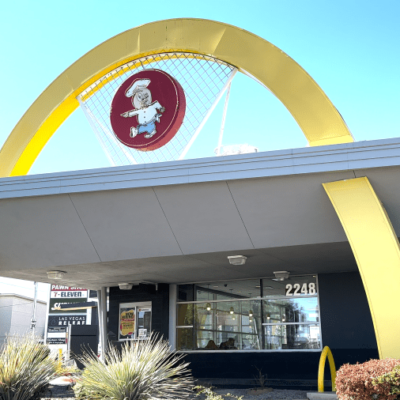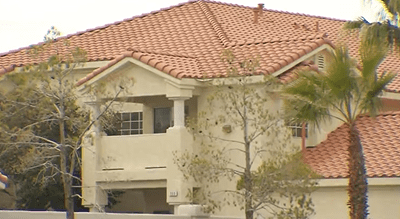When they embarked on political careers that would lead them both to the U.S. Senate, a pair of Nevada Democratic politicians – Harry Reid and Richard Bryan – were dubbed the “gold dust” twins.
More than half a century later, the phrase “lithium carbonate twins” doesn’t have as cute a ring to it. But it’s an apt sobriquet for Nevada’s current U.S. senators, Catherine Cortez Masto and Jacky Rosen.
They are staunch advocates on behalf of the companies hoping to mine lithium in Nevada. In their latest expression of heartfelt sympathy, support – thoughts and prayers, if you will – for aspirational lithium miners, Rosen and Cortez Masto signed on to a letter telling the Biden administration to give lithium mines a tax credit against the cost of extraction.
Lithium Americas, ioneer, and Century Lithium (formerly Cypress) are as of now the three companies proposing what would be the three largest new lithium mines in Nevada – Thacker Pass, Rhyolite Ridge, and Clayton Canyon, respectively,
There is only one commercially operating lithium mine operating in the U.S., Albemarle Corp.’s brine extraction facility near Tonopah. Albemarle, the world’s biggest lithium miner, also has active, and larger, mining operations in Chile and Australia.
In other words Albemarle has something Lithium Americas, ioneer, and Century Lithium don’t – actual experience commercially producing and processing lithium for use in battery components.
And Albemarle recently announced cost-cutting that includes layoffs, as well as deferring spending on a $1.3 billion production plant in South Carolina that the company announced just less than a year ago.
Albemarle’s CEO Kent Masters told investors earlier this month that “where prices are today, the economics aren’t there for those projects.”
In case you missed it, the price of lithium cratered spectacularly last year. In November 2022, a metric tonne of lithium carbonate was priced north of $84,000. Now it’s less than $14,000, a result of weaker-than-projected demand for EVs, accompanied by additional lithium production, led by Argentina and Australia, and supply surpluses.
The underlying assumptions – lithium is the mineral darling of the future, demand will rise exponentially, etc. – are still in place. The price could still drop some more in 2024. Some analysts expect it to begin rising sooner, maybe this year, others don’t anticipate a notable increase until late in the decade. But the consensus is the price will rise. Sometime.
There has been a lithium “boom” in terms of speculative investment, project proposals, and hype. Someday there might be an actual boom in lithium mining and processing of the sort promised by Nevada project backers.
Or there might not.
Several deep-pocketed companies, including Warren Buffet’s Berkshire Hathaway Energy (owner of NV Energy btw), are attempting to demonstrate lithium can be extracted directly from water and then the water injected back into the ground. That process would obviously be much more environmentally friendly than surface mining/acid leaching, and dramatically less water-intensive than brine extraction, the two methods proposed by a preponderance of would-be Nevada developers.
And the Inflation Reduction Act which has done so much to encourage lithium development also allocates billions for research and development of hydrogen fuel cells.
Commercialized success in either of those clean energy technologies, or others being worked on around the world, could, as the kids used to say, “disrupt” the lithium market.
But whatever the pace and scale of the lithium industry’s development in Nevada, the state needs to prepare for it more thoughtfully and responsibly than it has been so far.
Economic colonialism still sucks
Elected officials and policymakers have welcomed the would-be lithium miners with open arms, flowers, and very few questions except “can we get you anything else?”
Yet presumably there are some places in Nevada that even politicians and regulators in the grip of lithium fever might object to seeing torn up and/or dewatered for the sake of what today appears to be perhaps the world’s most volatile commodity.
Presumably many of them are also familiar with the phrase “abandoned mines,” and the damages and destruction the mining industry has caused then walked away from because a project no longer “penciled out.”
Earlier this month conservationists urged the state to develop a plan to identify places that should be taken out of consideration for lithium surface mining (the method that would be used at the three largest proposed projects in Nevada), or lithium brine evaporative pools, the traditional and water-intensive method of lithium extraction.
The request was made to legislators, who don’t meet for another year. But that’s the thing about a state where the legislature only meets for a few months every other year: for the rest of the time, the executive branch is strongly empowered.
Gov. Joe Lombardo should exercise that power (gets s**t done, as his paid supporters like to say about him), get the right people (a group that includes environmental advocates, governor) in a room, and start the ball rolling on a more thoughtful statewide lithium development plan now.
The state should also plan for the eventuality of lithium experiencing the fantabulous “boom” that so many have promised for so long – sustained robust demand at high prices for decades. In other words, at the very least, lithium should be taxed in Nevada not only just as much as gold (which it wouldn’t be under current law), but more.
Nevada has first-hand experience with the mining sector using urgency to demand – and get – regulatory and tax coddling from the state, and treating the state like an economic colony. It would be nice to say that Nevada now knows better. Unfortunately, all that can be said is that Nevada should.
The single factor that far more than any other will determine the future of the lithium industry is the global price of lithium. There is absolutely nothing Nevada can do about that.
And as for the federal tax credits advocated by Cortez Masto and Rosen, those would pad the bottom lines of any lithium projects that do become operational in Nevada, but they won’t have any impact on whether the projects are developed in the first place, or commercially viable if they are. Again, that will be dictated by the global price.
Besides, current Nevada mining tax law that applies to lithium is already extremely industry-friendly. Thanks to that law’s irresponsibly over-generous deductions, each year several mines pay no mining taxes at all on hundreds of millions of dollars worth of gold.
And according to the most recent report from the state, the sole operating lithium mine in Nevada, Alblemarle’s, produced $41.7 million worth of lithium in 2022. After declaring $25.4 million in deductions, Albemarle ended up paying $319,000 in mining taxes – less than eight-tenths of 1% of the $41.7 million.
While Nevada can’t control the economic and geopolitical factors that will ultimately determine the lithium industry’s development in the state and globally, state leaders can try to assure that Nevada isn’t harmed by and benefits from that development.
The prevailing assumption among Nevada leaders is the same one they always have: If Nevada helps companies succeed, Nevadans will benefit because prosperity will flow through the economy.
That crude and simplistic approach will fail to protect the environment or the public interest. Lithium might be hot, or it might not. But it will eventually be something. Nevada needs to get its head in the game.




